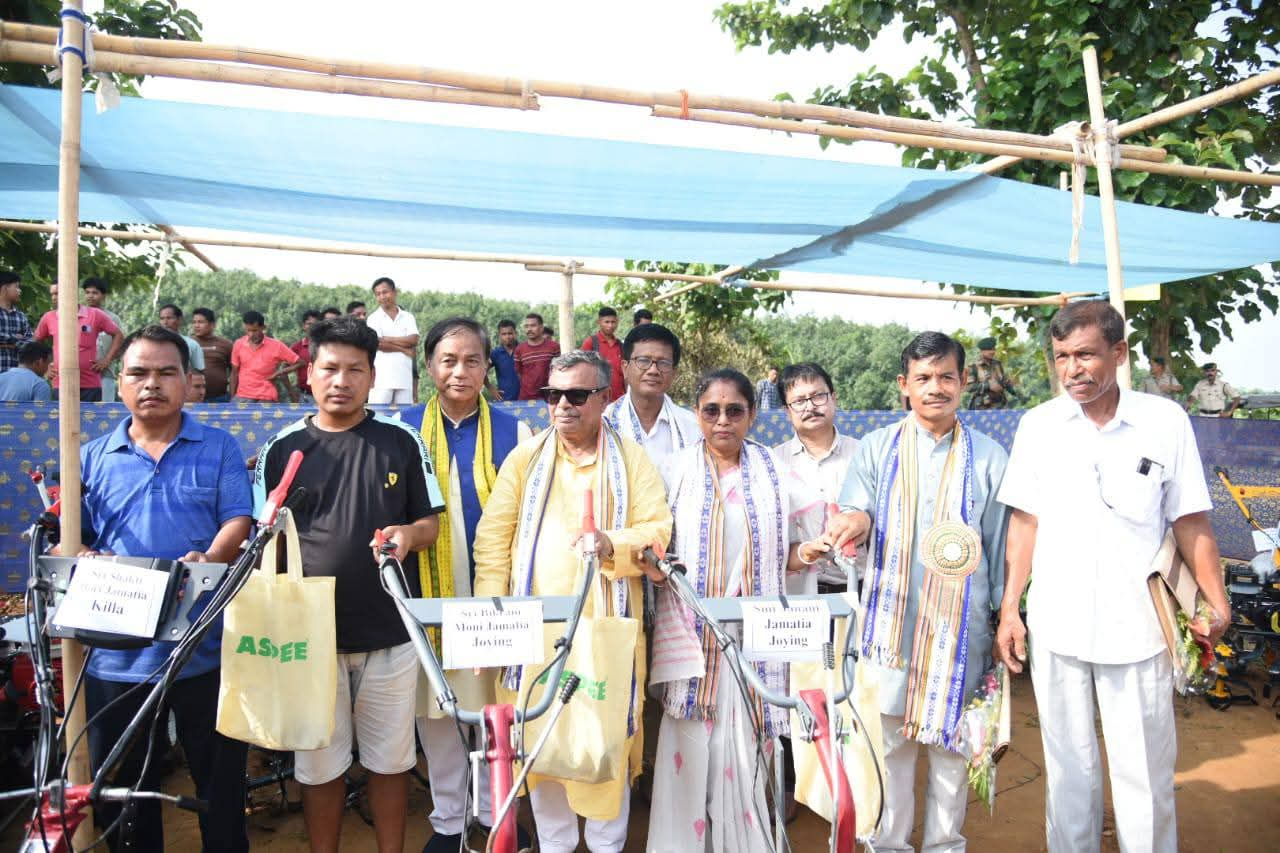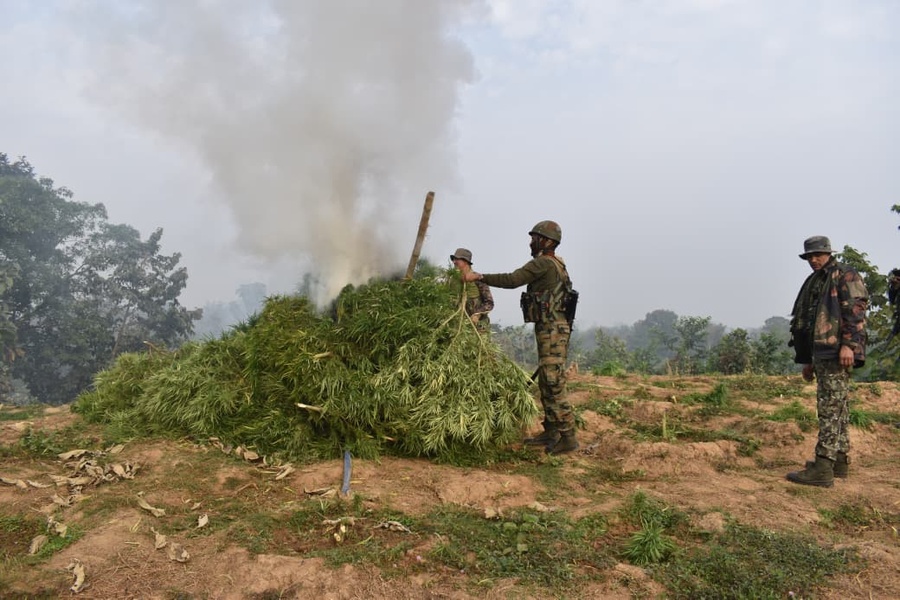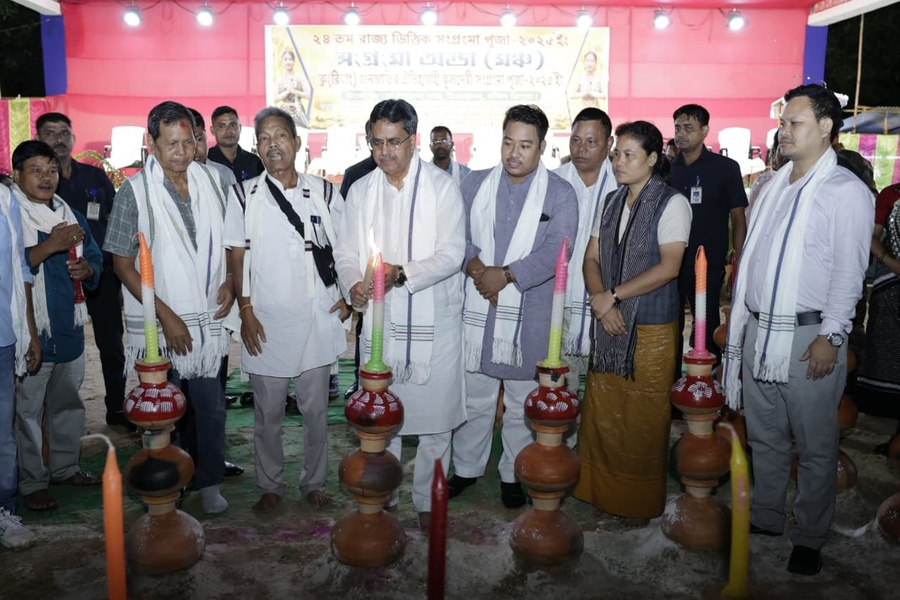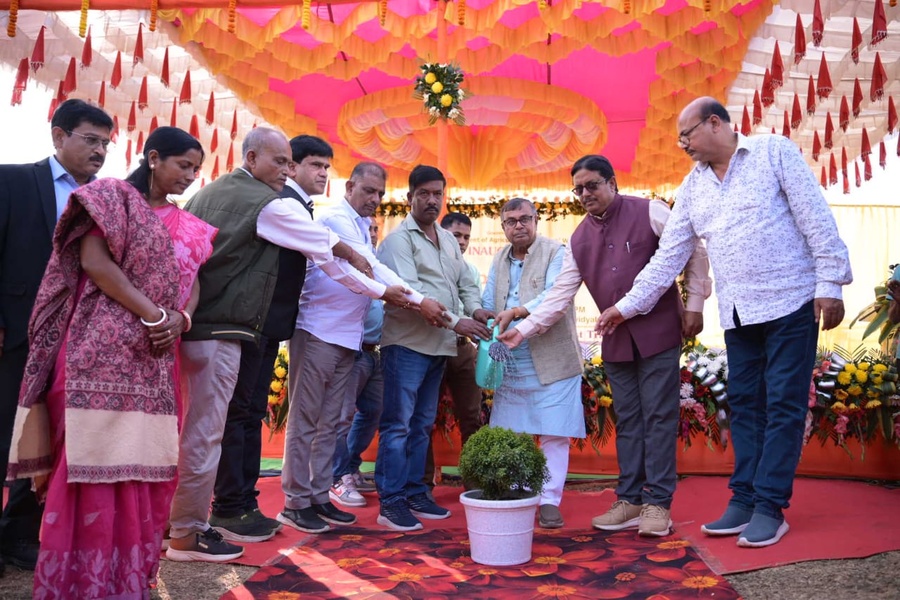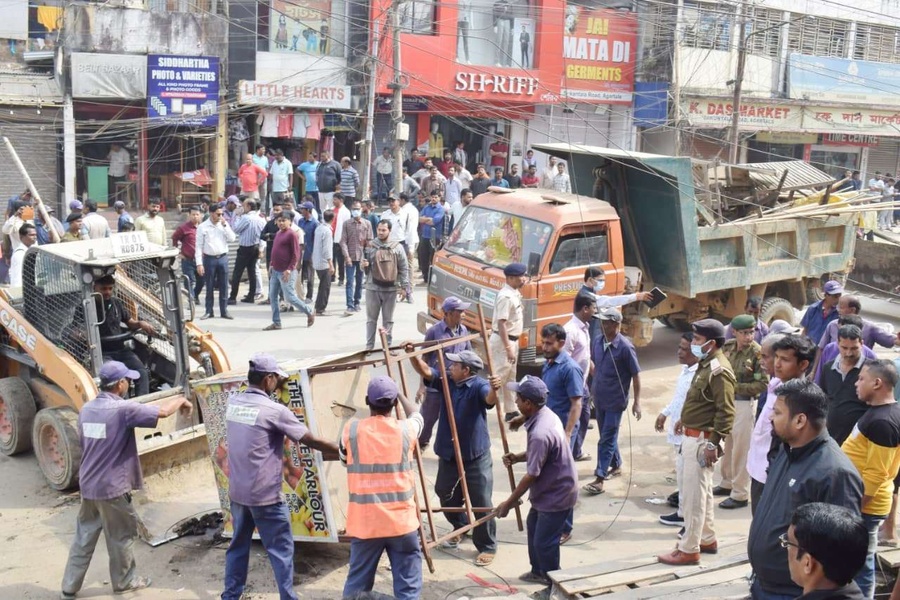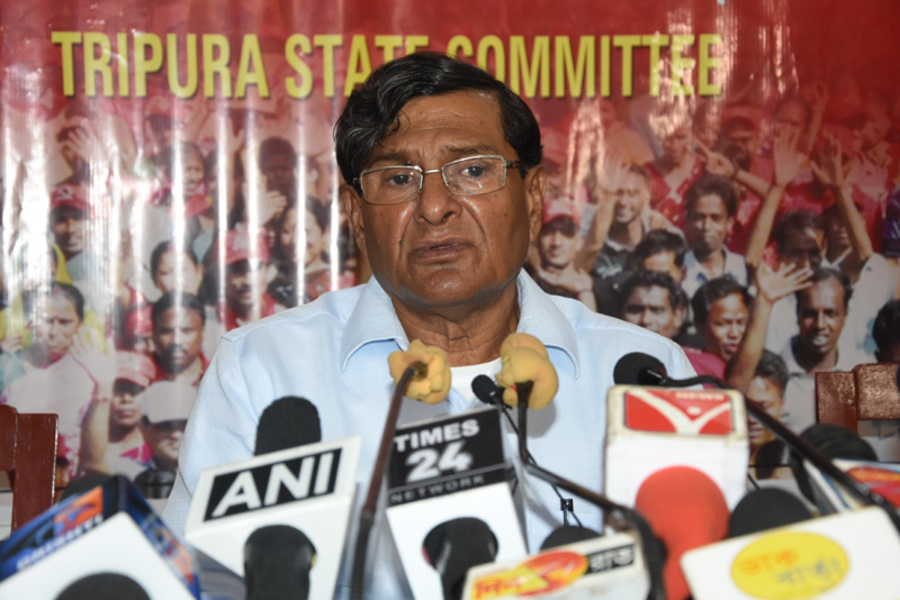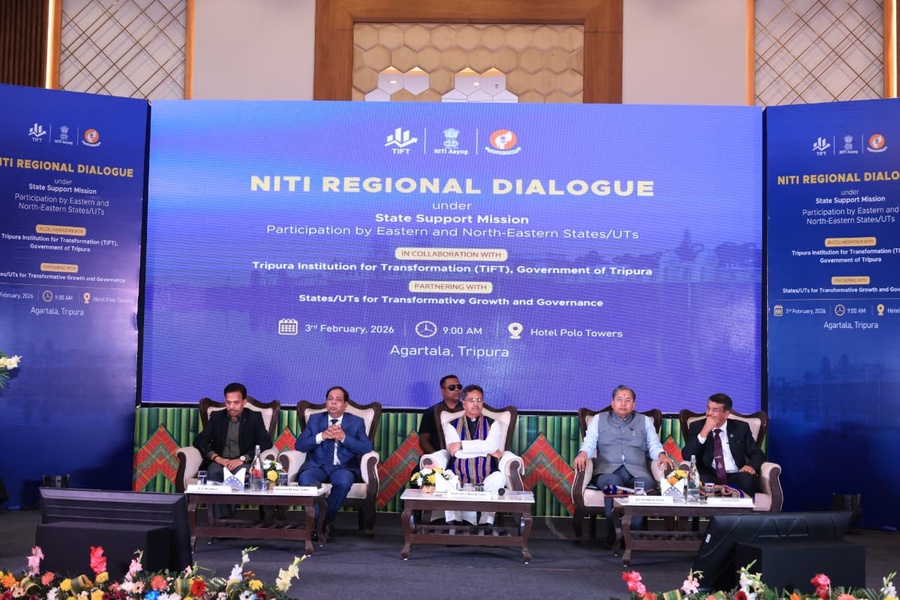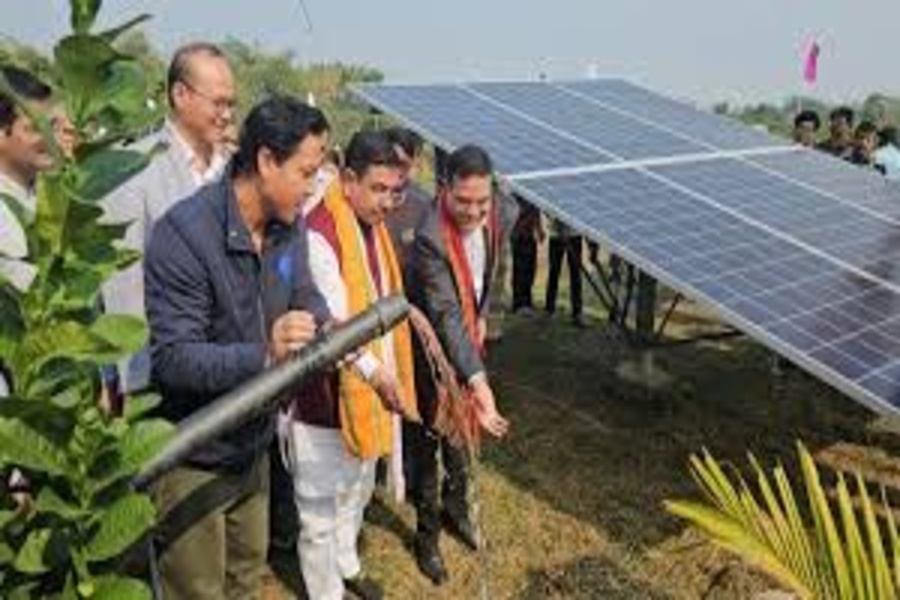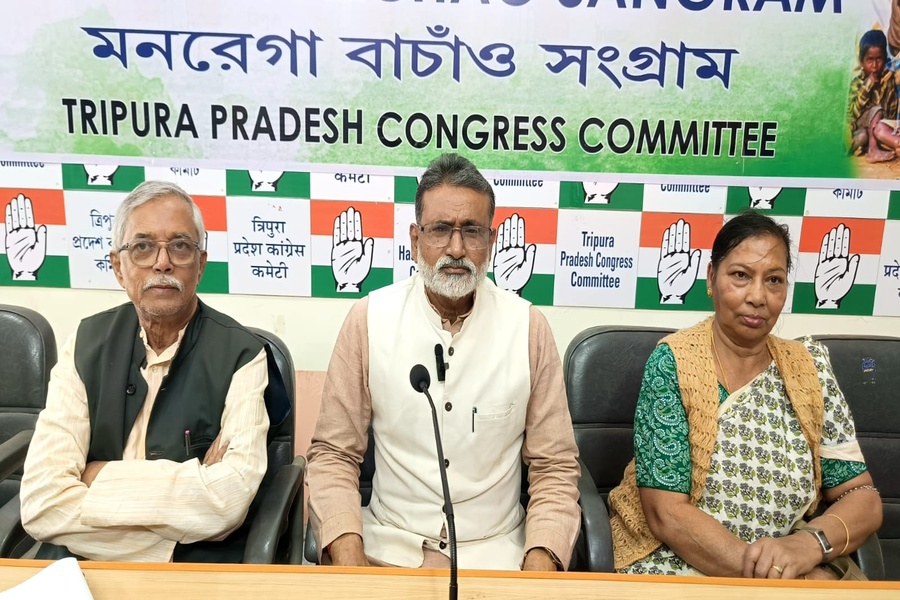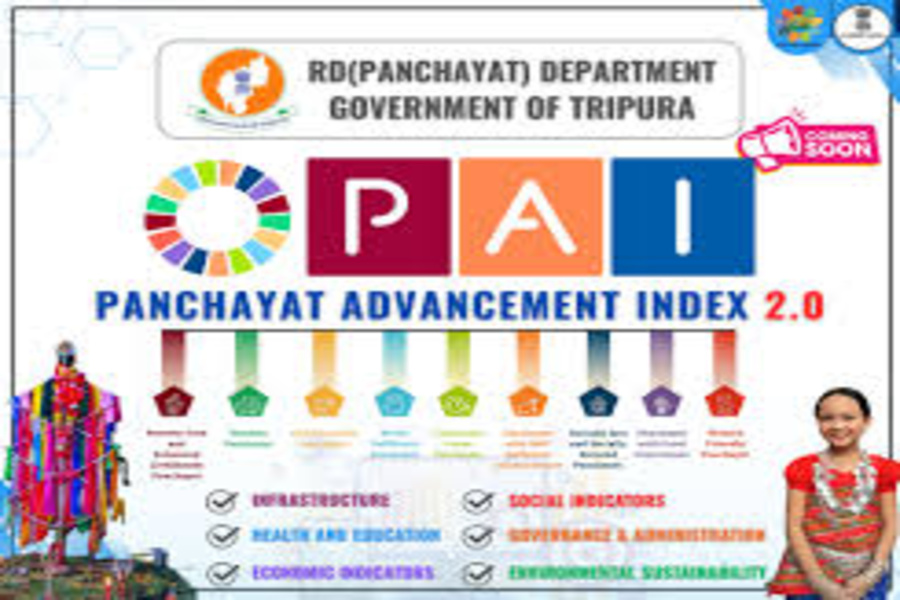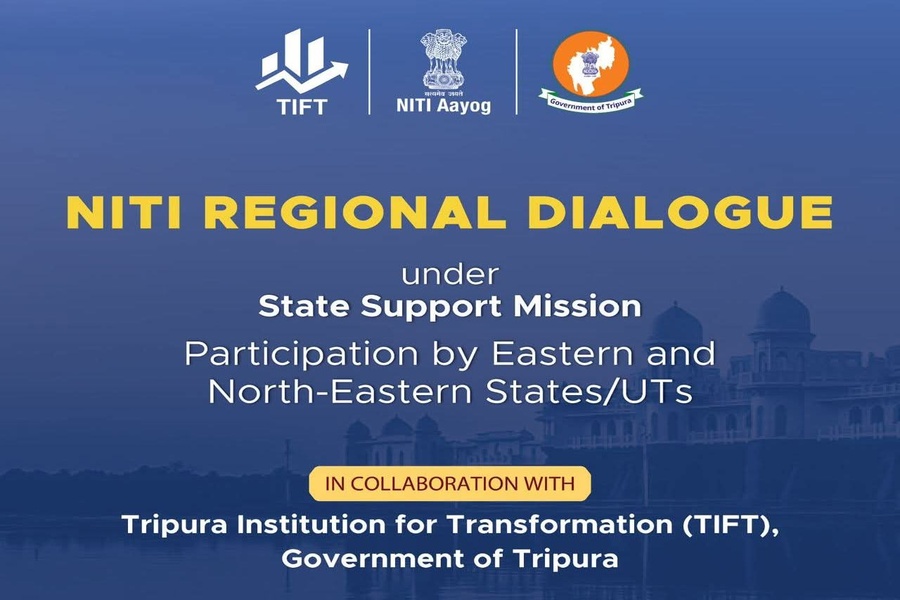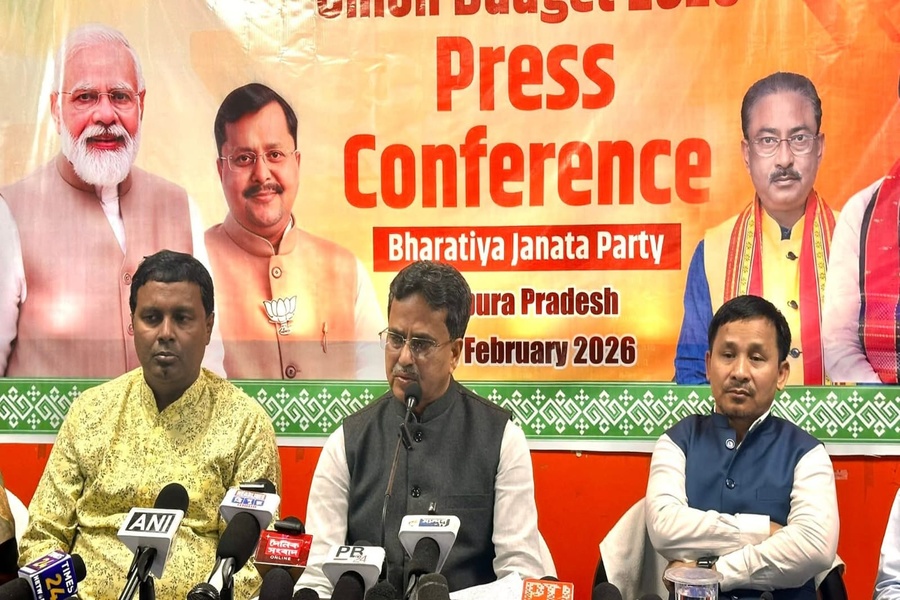The Agriculture and Farmers Welfare Department of Tripura is making consistent strides toward achieving self-reliance in agriculture, with 30 out of the state's 58 blocks now self-sufficient in food grain production.
This was announced by Agriculture and Farmers Welfare Minister Ratan Lal Nath during a series of official events held Wednesday.
The Minister made the statement while inaugurating the Photamati Primary Rural Market, launching an oil palm plantation drive at Raiyarbari, and opening a ginger processing centre managed by Khabakscha Farmer Producer Company (FPC) at Roabari in Gomati district. As part of the day’s engagements, Nath also joined farmers in planting paddy, encouraging greater participation in agricultural activities.
Highlighting the state government’s commitment, Nath said, “In Tripura, about 70 percent of the population is directly or indirectly dependent on agriculture. Making agriculture self-reliant is not just an economic goal—it is a roadmap to a self-reliant Tripura.”
He emphasized that infrastructure development is vital to achieving agricultural self-sufficiency. “The state government is working proactively to strengthen the rural agricultural ecosystem by developing primary rural markets and regulated market infrastructure based on tailored, need-based proposals,” he added.
Speaking on a broader vision, Nath reiterated the importance of agriculture as the backbone of India. “Our Prime Minister Narendra Modi believes that the nation cannot progress without strengthening agriculture. Today, under his leadership, India is no longer a country dependent on grain imports—we are now exporters to countries across the globe,” said Nath.
He pointed out that India is now exporting rice, wheat, sugar, ginger, garlic, and spices to Bangladesh; fish to China, Europe, the US, and Japan; and eggs and milk to nations including Oman, Qatar, Singapore, Bhutan, and several Arab countries.
“Thanks to Prime Minister Modi’s farmer-centric approach, India has achieved near self-sufficiency in rice, fish, eggs, and milk, barring a few exceptions. The government is ensuring that farmers receive support even before they ask for it,” Nath stated.
He further underlined that the current administration is focused on inclusive development. “This government does not discriminate based on political affiliations when it comes to delivering benefits. Since 2018, thousands have received housing, roads, drinking water connections, and more. We are even supporting farmers from land preparation to sapling distribution in oil palm cultivation,” he added.
The Minister's remarks signal a determined push towards agricultural modernization and inclusive growth, aligning with the central government’s larger vision of transforming India into a global agricultural powerhouse.

